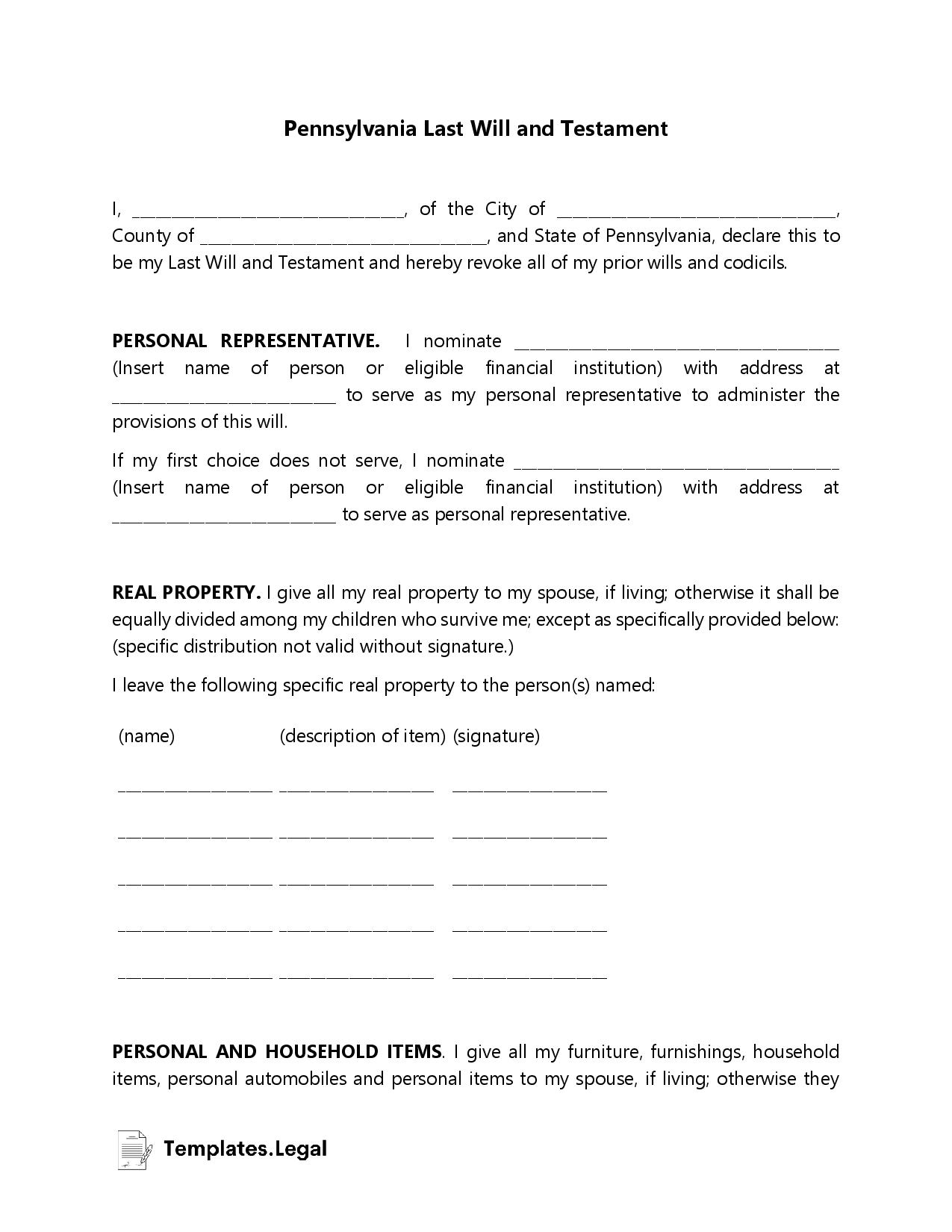
Deciding how to distribute your assets is a crucial first step in planning for your death. A Pennsylvania last will and testament is a legal document that helps you do so. By making your last will, you can ensure that your property and financial assets are given to the individuals of your choosing.
Contents hideWriting your last will in Pennsylvania requires that you meet a few criteria:

Take your time in deciding which assets you would like to distribute after you pass and who should receive them. If you have children, you should also think about assigning them a guardian in your will.
In Pennsylvania, you don’t need witnesses to sign the will with you. During the probate (the court process of validating your will), it may make things easier if your will is self-proving, or notarized.
When you’re sure of how you will distribute your assets, write or type your will on paper (only written documents are acceptable in Pennsylvania). Make sure you don’t sign until the end of your will. Any words that appear after your signature will not be valid.
Finally, choose an executor who will be in charge of ensuring that provisions you set in your will are met.
Pennsylvania law doesn’t require that you have a lawyer to make your will. That means you are free to choose a will template (Pennsylvania), a free last will and testament (Pennsylvania) online, or any other last will and testament (Pennsylvania) template you find online.
Additionally, you can simply write out your will by researching the state laws and using them as a guide. However, hiring a lawyer is highly beneficial. The laws can be complex, and certain unforeseen circumstances can impact your will.
If you have more children after making your will, for example, this will require making a new one. Changing or revoking your will in Pennsylvania can be done in any of the following ways:
Below are some of the most common questions regarding how to create a legal will in Pennsylvania.
What is the purpose of the last will?The last will help ensure that your property, assets, and business are inherited by the loved ones you choose. Additionally, if you wish to donate to an organization after your death, this can be specified in a will as well.
Other crucial reasons to make a will include setting up a pet trust or assigning a guardian to your children.
How much does it cost to create a will in Pennsylvania?The cost of making your will can vary depending on how large your estate is and any attorney fees. However, typical costs range between $200 and $1,000.
Does a will need to be notarized in Pennsylvania?While Pennsylvania state laws do not require you to notarize your last will, it may still be a good idea. Having a notarized will ensure a faster validation by the court, or probate. When your will is signed by a notary, it becomes “self-proving.”
Is it legal to write your own will in Pennsylvania?Yes, it is legal to write a will yourself.
Is a handwritten will legal in Pennsylvania?Yes, a handwritten will is legal.